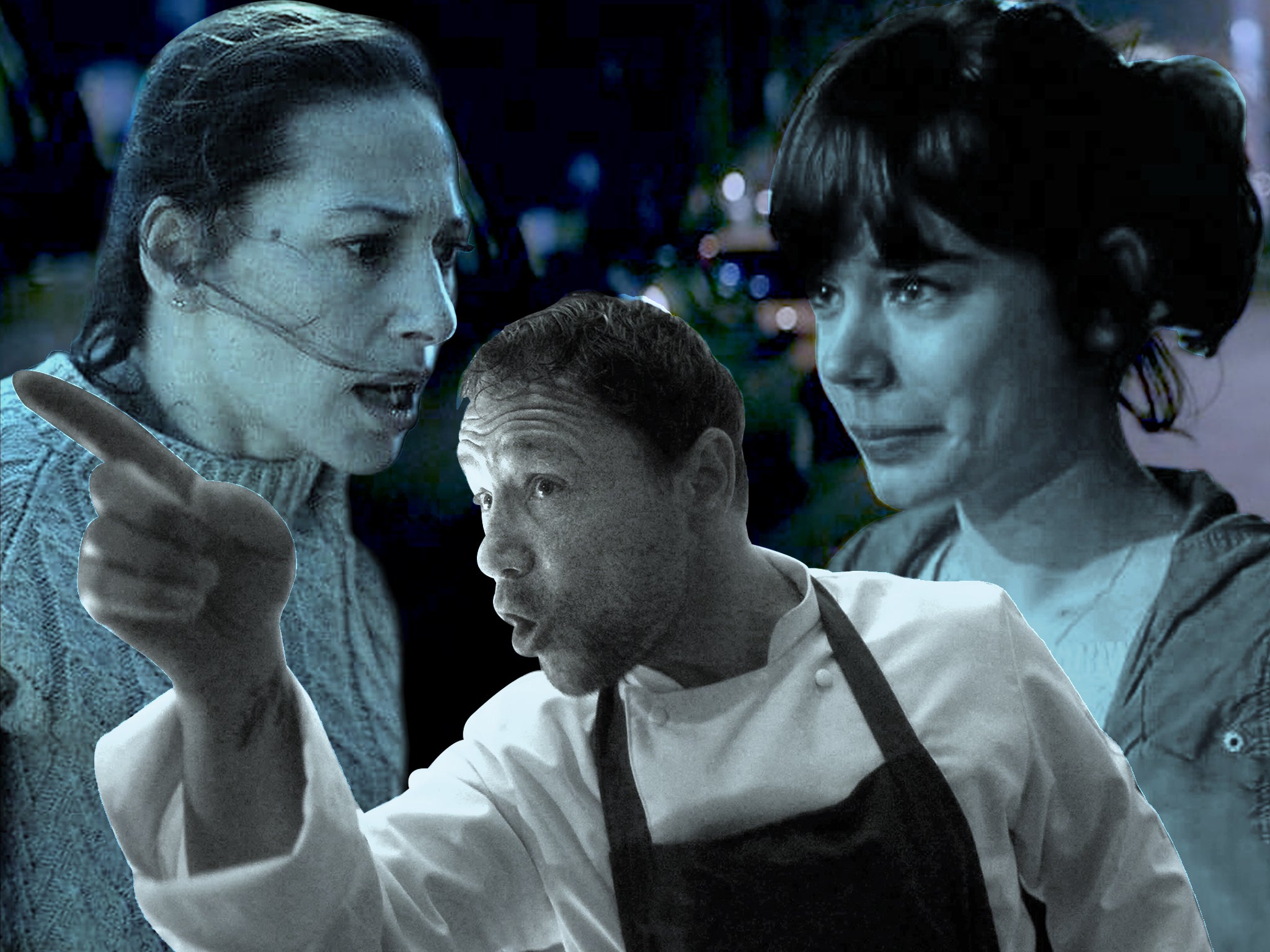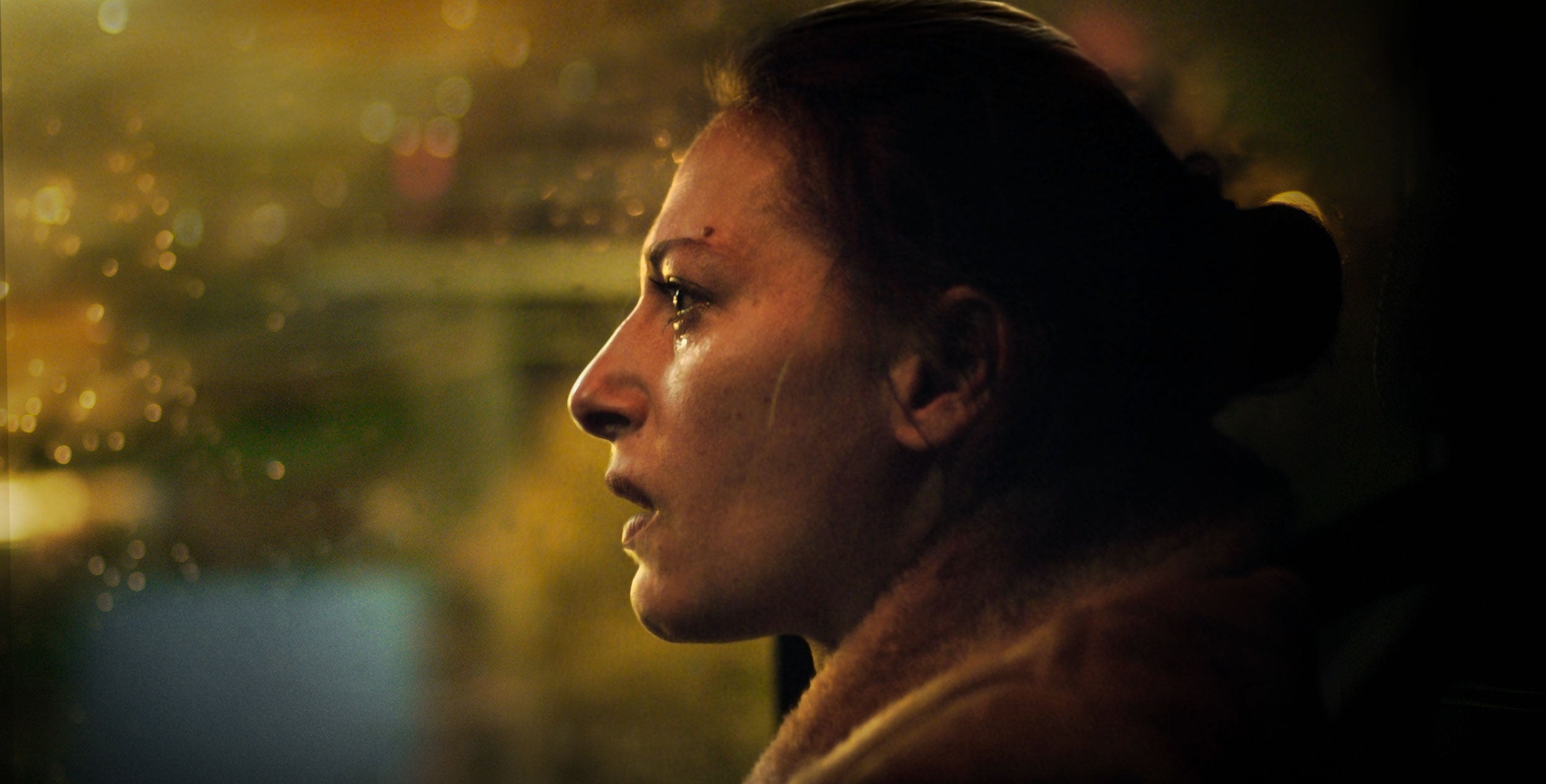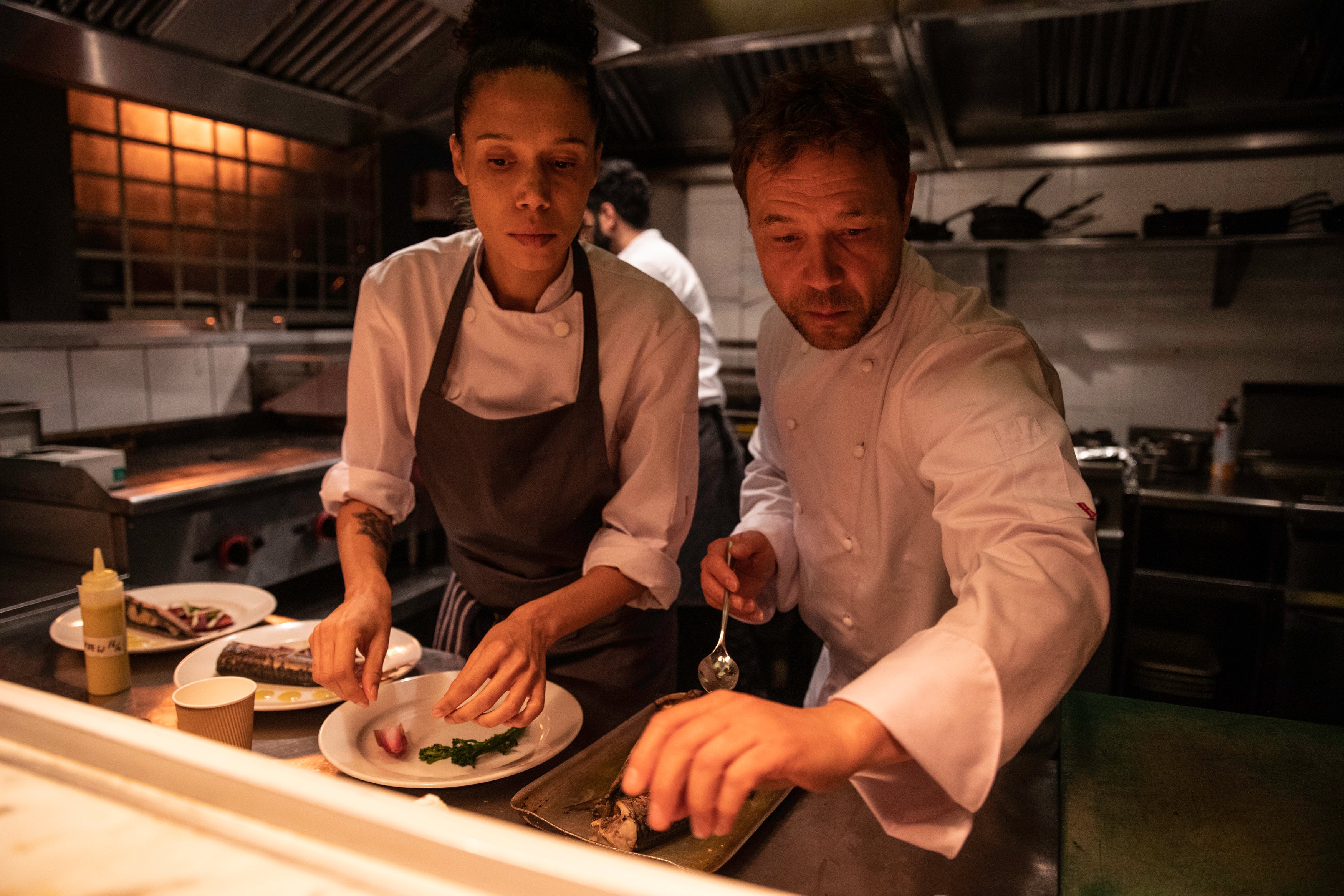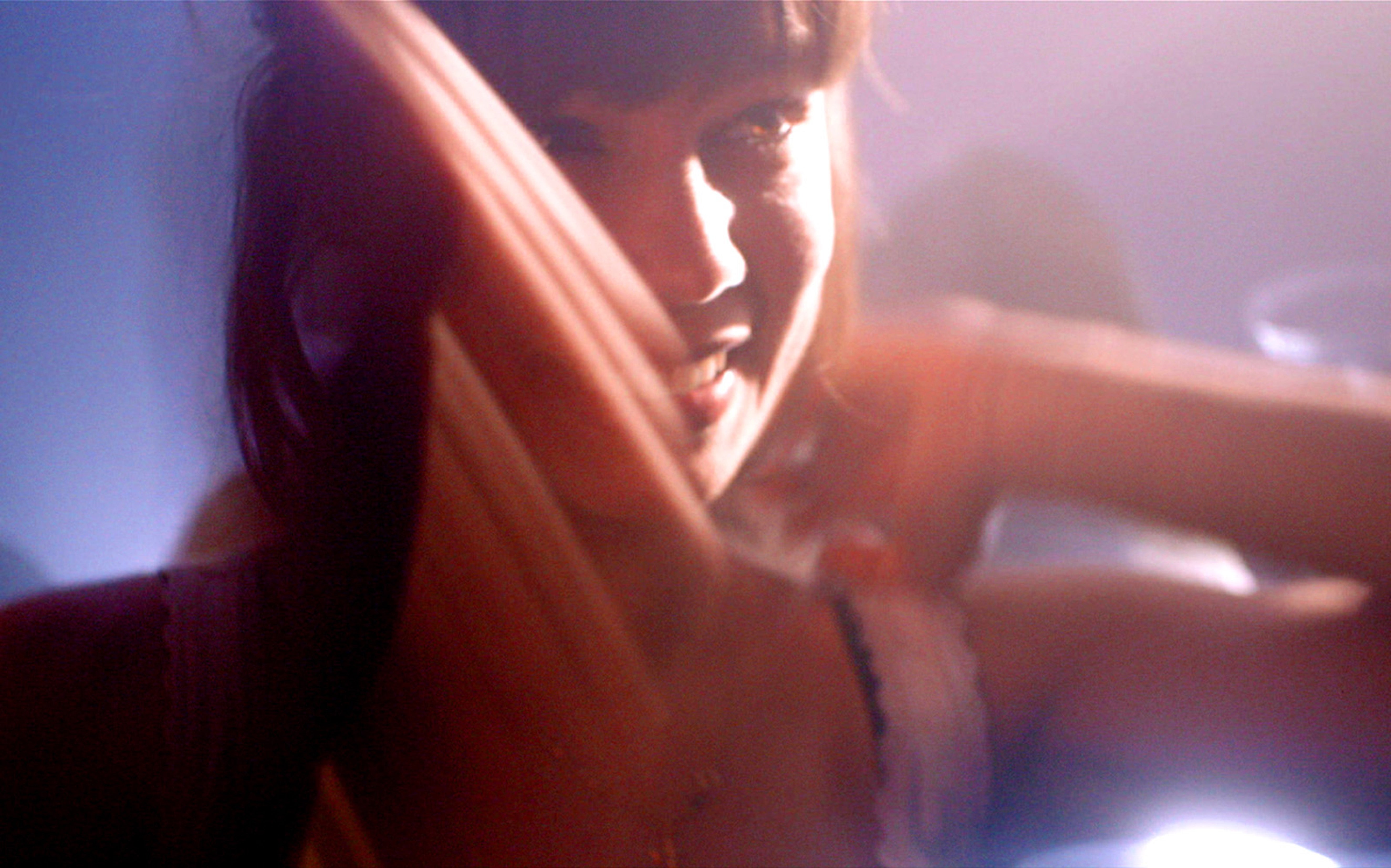‘For take two, those knuckleheads took MDMA’: Inside the chaotic world of one-shot films
From ‘Victoria’ and ‘Blind Spot’ to the new Stephen Graham chef drama ‘Boiling Point’, films shot in one continuous take stir up an unparalleled sense of rawness and urgency. Ellie Harrison talks to the directors behind them to find out how they pulled it off


Your support helps us to tell the story
From reproductive rights to climate change to Big Tech, The Independent is on the ground when the story is developing. Whether it's investigating the financials of Elon Musk's pro-Trump PAC or producing our latest documentary, 'The A Word', which shines a light on the American women fighting for reproductive rights, we know how important it is to parse out the facts from the messaging.
At such a critical moment in US history, we need reporters on the ground. Your donation allows us to keep sending journalists to speak to both sides of the story.
The Independent is trusted by Americans across the entire political spectrum. And unlike many other quality news outlets, we choose not to lock Americans out of our reporting and analysis with paywalls. We believe quality journalism should be available to everyone, paid for by those who can afford it.
Your support makes all the difference.The sun is beginning to rise on a cool, grey Berlin, and a group of men have just robbed a bank. Their getaway driver doesn’t know where she’s going. Everyone is shouting different directions. Breathless with fear, she takes a wrong turn, and several voices yell at once. “Go back! Go back! Go back!”
This is a scene from the electrifying thriller Victoria, but the lead actor Laia Costa and her co-stars really didn’t know where they were going. One of those bellowing voices belongs to the director, Sebastian Schipper, who was lying in the boot of the car. When Costa went the wrong way, he couldn’t simply say “cut”, because they were shooting the whole 138-minute film in one continuous take.
The result is an intoxicating, harrowing tour de force. As a lonely foreigner in Berlin who meets a group of fast-and-loose guys and gets roped into helping them rob a bank, Costa is in almost every frame. Schipper was right by her side, just off camera, the entire time.
It takes a brave person to attempt a one-shot film. The bravest, it seems, are in mainland Europe. In 2002, Alexander Sokurov’s experimental Russian Ark paid tribute to St Petersburg’s Hermitage museum in one meandering shot. In 2018, Erik Poppe made Utøya: July 22, about the terror attack at the summer camp in Norway. Now a Brit has finally plucked up the courage. Philip Barantini’s Boiling Point is the UK’s very first feature-length one-shot film. (Admirable though it is, Sam Mendes’ 1917 doesn’t count, because it was simply edited to appear as if it was one shot.)
Barantini’s simmering drama stars Stephen Graham as the head chef of a Hackney restaurant. He is desperately juggling the stresses of running a kitchen with his broken love life, addiction and debt. The film, which won four prizes at the British Independent Film Awards last month – including best cinematography – zooms in on Graham’s chef Andy, but we get a glimpse into the lives of his colleagues, too: the commandeering manager who shuts herself in a toilet cubicle in tears; the junior pastry chef who wears his sleeves rolled down, against chef’s orders, to hide self-harm scars. The effect is one of choreographed chaos, as the restaurant staff deal with visits from a self-righteous health inspector, a diner with a nut allergy (things don’t end well), a pompous celebrity chef and a group of influencer bros.
Barantini managed to avoid yelling any instructions at his actors during the take. It helped that one of his stars, Vinette Robinson, kept a “bible” in a kitchen fridge. Whenever the camera was following another character, the cast would be able to quickly check this book of movements and get into position before the camera came back round. “It had all that energy of doing a play,” says Ray Panthaki, who plays the commis chef. “It was a lesson in being incredibly present as an actor, and being in the moment. You just don’t want to be that person that messes it up an hour into the take.”
Costa certainly didn’t either. It wasn’t until after Victoria was released that Schipper found out that his lead star had gone for a wee in the middle of shooting. “I couldn’t hold it in any more so I ran off and peed in a little pot in front of, like, 30 extras,” Costa told me last year. “It’s the only moment Victoria is not in front of the camera.” The nightclub scene was so frenzied, Schipper didn’t even notice she was gone.
For Tuva Novotny, who made Norwegian mental health drama Blind Spot in 2018, there was no such thing as “messing it up”. While Victoria and Boiling Point are bubbling over from the get-go, Blind Spot is a film of two halves. It opens softly, with a pair of schoolgirls walking home after a handball match, their ponytails bobbing as they talk about homework and what they’re having for dinner. The camera stays with one of the girls as she walks up the many stairs to her mother’s sky-high apartment, has a glass of milk and a sandwich, says goodnight to her brother, and jumps out of the window. The rest of the film centres on her mother’s despair.

Blind Spot offered plenty of opportunities for things to go wrong: there are child actors; a drive on a motorway; scenes filmed in a working hospital. But Novotny says she was insistent on set that “there was no wrong”. “In real life you stutter and fall, you slip, you don’t put the coffee cup in exactly the same place,” she says. Still, she was a little worried about Pia Tjelta, who played the mother in the film and also happens to be her best friend, because she was hyperventilating, in character, for so long on screen. “She did almost faint but then the paramedics were also there anyway giving her oxygen,” she says. “Genuinely nearly fainting, almost throwing up… It was hardcore.”

Watch Apple TV+ free for 7 days
New subscribers only. £8.99/mo. after free trial. Plan auto-renews until cancelled

Watch Apple TV+ free for 7 days
New subscribers only. £8.99/mo. after free trial. Plan auto-renews until cancelled
Most of these films took three or four takes to get right. “The first take of Victoria was really boring,” says Schipper. “Everybody was holding back. The second take was crazy because two of the guys took MDMA. I didn’t know at the time but after, I could see it. They would totally forget what the scene was about. These knuckleheads thought – and I don’t blame them looking back – but these f***ing knuckleheads thought, ‘Dude we’ve got to just do it for real.’ But you could see it. In the scene where they steal the car, and because the lights are on and the doors are open, the car goes, ‘Ding ding ding ding ding,’ and they were tripping out on the sound. I was so angry, because each take cost 70,000 euros.”
With tensions running high, the next night, they shot the third take of Victoria, the one that was used for the film. Schipper says the whole team was “exhausted” when they wrapped. “When I saw it the next day I cried really very hard,” he says. “And I am not a big crier. The tension. There was just so much stress. And that just fell away and I was left with this beautiful thing. This crazy dream had become a reality.”

Novotny chose the third take of Blind Spot, even though the second was the most beautiful. “On the second take, it was a magical, bright winter day,” she says. “But I had made promises to the psychiatrists that I was working with that the one thing we needed to avoid was romanticising the subject. There is, among young people, still some kind of romantic idea surrounding suicide. So I just couldn’t keep that promise making a movie that was so poetic. It was really beautiful, it just didn’t work.”
Novotny wanted to take away any element – score, star names, editing – that would sensationalise the topic of suicide. “I really wanted to keep it sober and respectful,” she says. “It’s as close to a documentary take as possible.” To add to the realism, the actors playing the daughter, mother and father are practically the only performers in the film. Everyone else – the paramedics, the doctors, the taxi driver – are all real professionals.
Everyone said it was crazy. They were like, ‘You can’t do it in one take’
Making a one-take film sounds like a lot of hard work, so why do it? “I wanted it to be real and raw and erratic, with overlapping dialogue,” Barantini tells me. He felt that shooting Boiling Point in one take was the best way to capture the immense pressure of working in a commercial kitchen; he was a chef himself for 12 years. “When you’re in a busy restaurant service, you don’t get a chance to go back and do stuff again, because you’re a million miles an hour. Everybody’s got to be on the same train going in the same direction. Life is one take, and this is a slice of life in real time.”

Authenticity was a top priority for Schipper, too, when he made Victoria. While bored with working on another script, he had daydreamed about robbing a bank. “I knew that if I did it with my two best friends, it would be the craziest thing any of us would have done in our entire life spans,” he says. “Then I thought, ‘Well, I’m a filmmaker so I could make a film about it.’ But the extent to which that idea turned me off was really crazy. I nearly fell asleep thinking about it. ‘Please no, not another film about a bank robbery.’ So I explored why that felt so boring, and at the end of that big think, I thought, ‘OK, let’s try to build an experience that would feel like that for real’. So it became a one-shot film.
“I stole two quotes when talking about Victoria,” he adds. “One is from Francis Ford Coppola: ‘Apocalypse Now is not a film about Vietnam, it is Vietnam.’ I said: ‘Victoria is not a film about a bank robbery, it is a bank robbery.’ We failed many times before we were finally able to pull it off. It was exciting and dangerous. And the other quote I stole is from Francis Bacon, who was being asked if he wants to address the brain, the mind or the heart with his paintings. He said: ‘I want to address the nervous system.’”
With the classic multi-shot format, it is impossible to emulate the velocity and urgency of one-shot films, where the audience is grabbed by the scruff of the neck and plunged into the characters’ fictional world for an hour or two. The lack of camera trickery, special effects and splicing between shots adds to the visceral realism. So does the improvisation. Because they are all in real time, they have a thundering pace. Watching them feels like playing a video game.

Novotny, Schipper and Barantini all had the same reaction when they told people they were making a one-shot film. “Everyone said it was crazy,” says Barantini. “They were like, ‘You can’t do it in one take.’” Panthaki admits he “wanted to run a mile” when he first heard about the project. “The idea of it made me incredibly nervous,” he says. “The fact it was one take, it was semi improvised, and I was working with an idol of mine in Stephen Graham – it all scared the life out of me.”
“People thought I was mad,” says Novotny, and Schipper remembers the boss of Berlin film funding telling him: “That’s not even possible for five minutes.”
Would they ever make a one-shot film again? “Most definitely,” says Novotny. “I didn’t find it stressful at all, but rather an enormously rewarding way to gather the different forces of a movie set into one mutual performance. It’s simply a ride, and for me the closest thing to authenticity I’ve known through 25 years in the movies.”
Barantini would, too. “I wasn’t grey before the film, I’m grey now,” he says, laughing. “What a crazy, crazy few weeks it was. Ridiculous. If you’d asked me a couple of days after we wrapped would I do it again I’d say absolutely no chance, but I definitely would do it again now.”
Panthaki agrees. “One hundred per cent. I’d do that again in a heartbeat. I don’t think I’ve had a job in my whole career that’s been as satisfying.”
Schipper is opting out. “All I know is I’m not making a one-shot film again,” he says firmly. When I tell him the others would, he smiles. “Wow. They’re brave.”
‘Boiling Point’ is out in cinemas and online from 7 January



Join our commenting forum
Join thought-provoking conversations, follow other Independent readers and see their replies
Comments